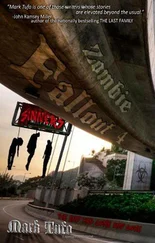There was a long, unendurable pause as he looked around at all of us in case we had questions. “Okay, that’s my little speech,” he concluded. “Thanks for indulging me.” At last we were released. We started to get up again. We had no idea Joe carried with him the reformer’s spirit. We had mixed feelings about reformers. Some of us thought they were noble, and likely to change nothing. Others were outright hostile. Who the fuck is he — that sort of response.
“You know, Joe,” Tom Mota said, just as we had started to file out. “There’s really nothing wrong with being gay.”
Joe cocked an ear at him, but managed still to look him firmly in the eye. “With what?” he asked.
“Hank Neary’s gay,” Tom continued, avoiding the direct question. Hank was just then pushing his chair in. He looked startled to be the sudden subject of conversation. “Aren’t you, Hank? And he has no problem with it.”
“Tom,” said Joe. “You must not have heard anything I just said.”
“No, I heard you, Joe. I heard you loud and clear.”
People halfway out the door halted in their tracks.
“Then maybe you didn’t understand,” Joe tried to clarify. “The point was there’s right talk, Tom, and there’s wrong talk, and who’s gay or who isn’t gay, that’s the wrong talk, understand? That kind of talk could be construed as slander.”
“Slander?” said Tom. “Whoa, slander — Joe, that’s an expensive word, slander. Do we need to involve lawyers? I have lawyers, Joe. I have so many fucking lawyers it would be no problem putting them to work on this one.”
“Tom,” said Joe. “Your anger.”
“Excuse me?” said Tom.
“Your anger,” Joe repeated.
“What the fuck does that mean,” said Tom, “‘Your anger’? Is that what you just said, ‘Your anger’?” Joe didn’t reply. “What the fuck does it mean, ‘Your anger’?” Joe left the room. “Does anybody know what the fuck he means by ‘Your anger’?” asked Tom.
We knew what “Your anger” meant because we suffered from the same anger from time to time. We suffered all sorts of ailments — heart conditions, nervous tics, thrown-out backs. We had the mother of all headaches. We were affected by changes in weather conditions, by mood swings and by lingering high school insecurities. We were deeply concerned about who was next, and what criteria for dismissal the partners were operating under. Billy Reiser came in with a broken leg. At first everyone was excited. How did it happen? We gathered down at his office as soon as word spread, as if guided by a voice or a high-pitched frequency. Talk was like the flu: if it started with one, soon it infected all. But unlike the flu, we couldn’t afford to be left out if something was going around. We wanted Billy to tell us how it happened. “Softball,” he explained. That was it? “Bad slide,” he elaborated. We couldn’t help feeling disappointed. We told Billy we hoped he felt better soon and left again for our desks. A reason like that was hardly worth getting up for. Then over the next ten or twelve months, Billy proceeded to hobble around on his crutches, and swear to god you could hear the guy coming from six miles away. Jesus, we said eventually, aren’t you off those things yet? “Complications,” he said. He went through a series of surgeries. There were metal pins involved. Doctors said he might walk forever with a limp, so he was considering a lawsuit. We felt sorry for him, but at the same time, Billy heaving himself across a hallway, the joints of his crutches creaking like a nineteenth-century whaler — it might not sound like much, but day-in day-out, it started to grate. We understood “Your anger” whenever Billy passed by, irrational and unforgiving anger which caused some of us to call him, at one point or another, every derogatory name for a handicapped person in the book — mean and insensitive names like “crip,” “gimp,” and “wobbler” — while others we made up on our own. “The guy’s name is Reiser,” said Larry Novotny, “but he can’t even stand up on his own two legs.” Amber clucked at him for shame and the rest of us for the poverty of the pun but from then on we never called Billy by his first name again. It was always Reiser. Of course we took pains not to let Reiser get wind of our frustrations with him, most days. Most days we let human foibles run right off of us, as Jesus commanded. “Let he that is without sin cast the first stone,” for we had among us our fair share of believers. We had a Bible study group. They met for lunch every Thursday in the cafeteria. A motley crew of condo-board executives, South Siders, recovering anorexics, building people, receptionists. It was an ebb-and-flow crowd, mimicking faith itself. The Word was the source that brought us all together. We drifted in and out of it, trying to make sense of the Word as it applied to us in our personal lives as well as in the corporate setting, but most of us just stayed away. More power to them, we liked to say. What were we missing? we wondered at night. How boring to listen to them go on and on about God, we thought every Thursday around noon. We had to ask, was this really the place for God? The sight of a dozen Bibles open on a cafeteria table and the familiar heads now bowed in a wild transformation of our long-established expectations of who they were shook us a little, as if forcing us to confront the possibility that we knew nothing, absolutely nothing about the inner lives of anyone here. But that soon passed. Our scope was infinite, our reach almighty, our knowledge was complete. Goddamn it, sometimes it felt like we were God. Was it such a blasphemy? We knew everything, we had terrible powers, we would never die. Was it a surprise that most of us did not join in at Bible study?
“I don’t really give a shit if the guy’s a homo or not,” said Tom Mota, a week or so after his encounter with Joe Pope in the Michigan Room. “I just want to know what the fuck he means by ‘Your anger.’” There was an opening between two clusters of cubicles that allowed enough room for a couple of round tables and several chairs where we found ourselves congregating some mornings around a box of Krispy Kremes or a bag of bagels that someone, inspired by the possibility of a brightened day, purchased and brought in and shared with the rest of us. The human spirit shining through against all adversity. We were enjoying our breakfast, drinking our first cups of coffee of the morning, when Joe Pope comes by carrying some ad freshly ripped from the printer and asks who brought in the bagels. “May I have one?” he asked. Genevieve Latko-Devine said of course he could and he thanked her and we expected him to be on his way after that but he lingered to spread some cream cheese and then he sat down among us, thanking Genevieve again. It was all very casual, as if routine, nothing out of the ordinary. We felt it, though, right here — Joe Pope’s unexpected presence. Bonhomie took a holiday.
Things got very quiet, until Joe himself finally broke the ice. “By the way,” he said. “How are you all doing with the cold sore spots?”
We were in the process of coming up with a series of TV spots for one of our clients who manufactured an analgesic to reduce cold sore pain and swelling. We took in Joe’s question kind of slowly, without any immediate response. We might have even exchanged a look or two. This wasn’t long after his second promotion. Doing okay, more or less, we said, in effect. And then we probably nodded, you know, noncommittal half nods. The thing was, his question — “How are you all doing with the cold sore spots?” — didn’t seem a simple question in search of a simple answer. So soon after his promotion, it seemed more like a shrewd, highly evolved assertion of his new entitlement. We didn’t think it was actual concern or curiosity for how we were progressing on the cold sore spots so much as a pretense to prod our asses.
Читать дальше












